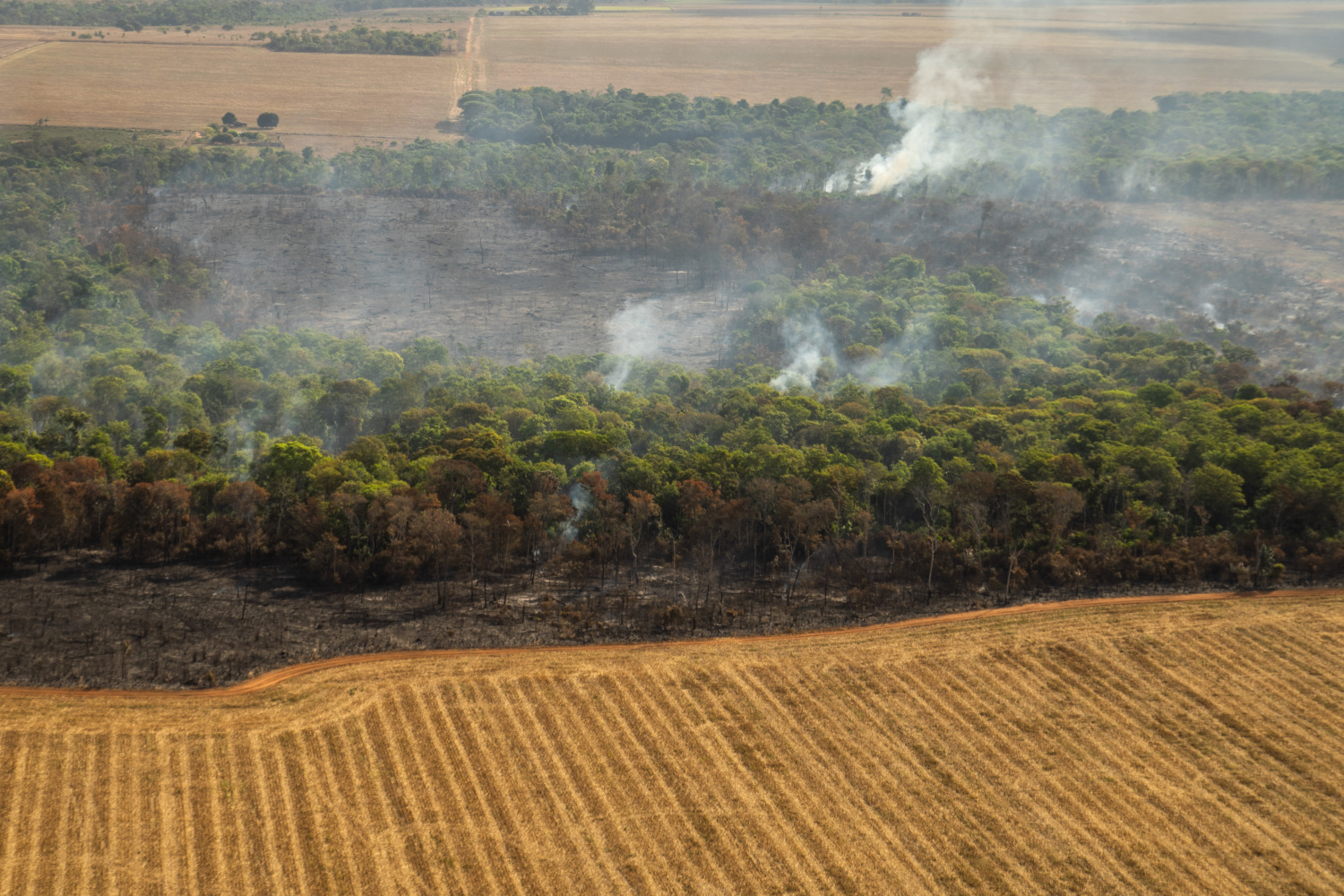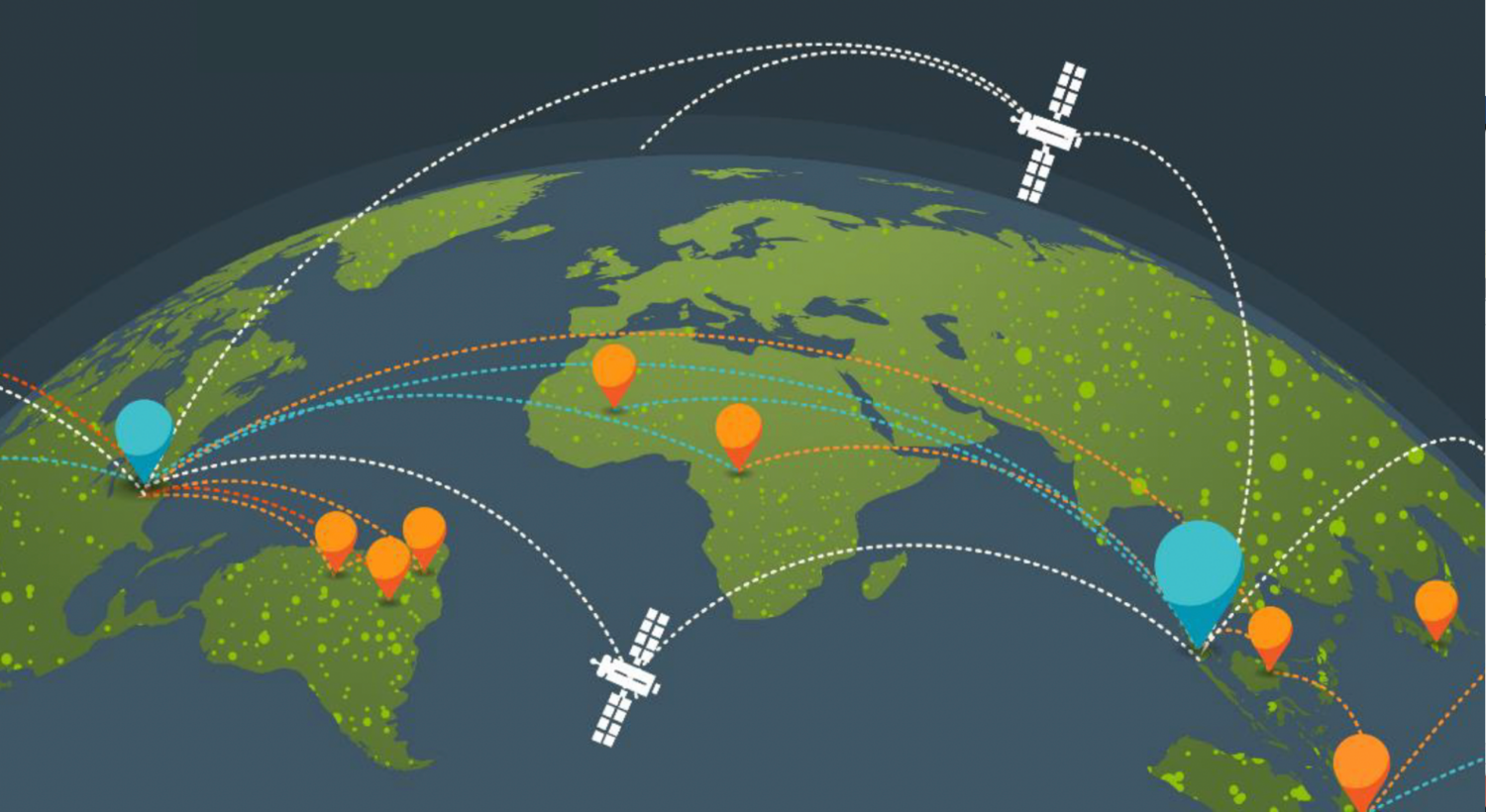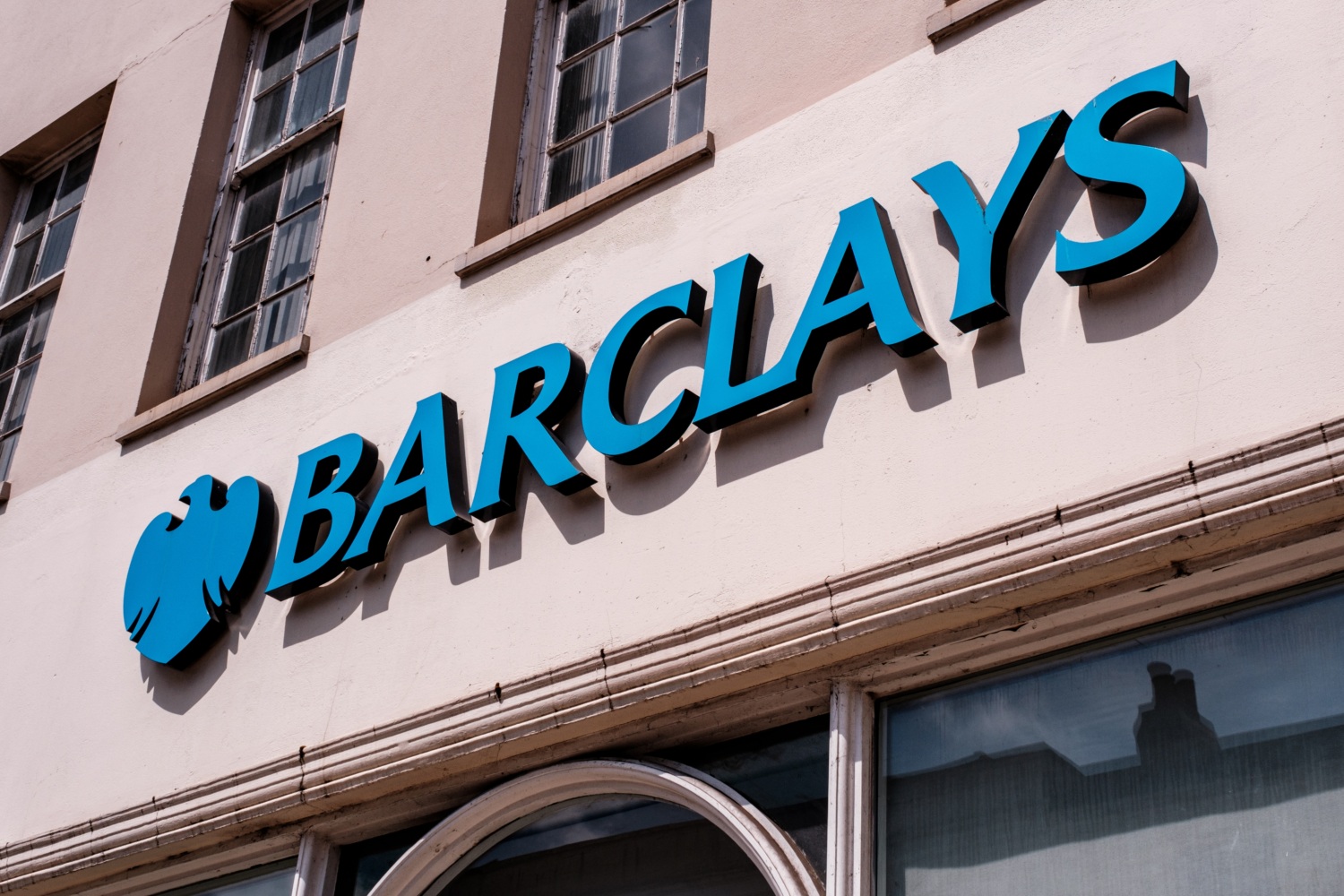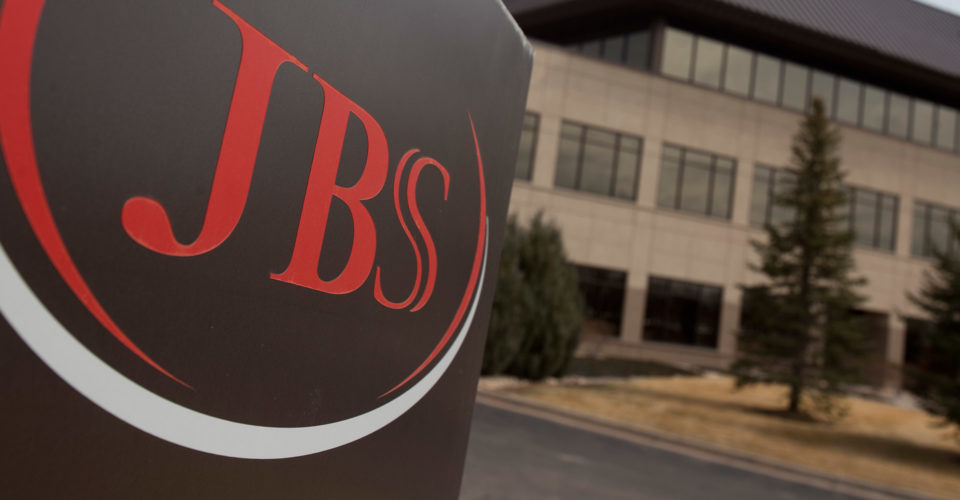
Clear Progress from Carrefour on Deforestation, But More To Do
At a time when forest protections have come under attack – and remain at risk – the French retail giant has responded to Mighty Earth’s engagement by making moves to clean up some parts of its beef supply chain in South America.
For more than a year, environmental protections have been subject to significant pushback across the globe – particularly forest protections. The EU Deforestation Regulation (EUDR) was fiercely attacked, with coordinated efforts targeting its scope and implementation timeline. However, thanks to the rapid mobilization of NGOs, opponents of the EUDR failed in their efforts to weaken the regulation, although full implementation was delayed by a year. As a part of this broad coalition effort, Mighty Earth notably played a key role in pushing Carrefour to publicly commit to supporting the current version of the EUDR and its continuation into 2025, demonstrating that the private sector was prepared to act – and countering a key argument against the regulation.
However, further attacks on forest protection are emerging, such as the EU-Mercosur free trade agreement, which lacks binding sanctions for violations related to deforestation, biodiversity, and social rights. This latest attack comes even as a recent study found that wealthy countries are “exporting deforestation” and driving mass extinctions across the globe; consumption within these nations is responsible for 13% of global forest loss beyond their borders. These challenges must be fought at the national level to prevent global deforestation from worsening.
In recent months, one of the most critical mechanisms for forest protection in the 21st century has also come under threat. The Amazon Soy Moratorium, which has been essential to curbing Amazon deforestation, has been supported by both the government and the private sector in the past. But now, a state law that removes tax benefits for soybean traders purchasing from deforested areas could be overturned, undercutting the Moratorium. Officials in Mato Grosso state, Brazil’s largest soybean producer, are pushing for a compromise with the government, raising concerns about the Moratorium’s status as the deforestation season approaches.
Carrefour makes progress to end deforestation in cattle supply chains
Private sector leverage is a key part of Mighty Earth’s strategy to address these varied and ongoing threats. One of the best recent examples of our strategy is our work with Carrefour in South America.
Thanks to Mighty Earth’s engagement, Carrefour has made substantial strides in addressing deforestation linked to its supply chain. Last year, Carrefour became the first global retailer to launch a Forest Transparency Platform, a pioneering initiative that compels suppliers like JBS and Cargill to comply with deforestation-free sourcing policies. This platform collects reports from NGOs (mostly from Mighty Earth’s Rapid Response reports and our direct engagement with the company) on non-compliance risks and ensures transparency in Carrefour’s supply chain. Carrefour has committed to updating this platform quarterly, allowing us and others to monitor the results of investigations and see the immediate actions taken by the company.
In November 2024, Carrefour further deepened its commitment by publishing a document: “Combating Deforestation: Strategy to Tackle Deforestation and Conversion.” Thanks to our Rapid Response program, Carrefour committed to verifying past beef supplies before enhancing its monitoring tools. This strategy, developed from Carrefour’s experience in the state of Rondônia, expands monitoring beyond Carrefour’s direct suppliers to include all farms supplying the slaughterhouses Carrefour is sourcing beef from. If a non-compliant farm is found, it is then delisted across Carrefour’s entire supplier network. This effort led to checks across all Brazilian biomes and a reevaluation of 8,687 farms. According to Carrefour, they identified 705 non-compliant farms that were subsequently delisted. This action represents significant progress in ensuring the integrity of Carrefour’s supply chain.
Unlike Casino group and GPA, which have not implemented a zero-deforestation policy for beef with a 2025 target, Carrefour has shared some key components of their policy:
- Beef Suppliers in Brazil: 100% of Brazilian beef suppliers are now part of a geomonitoring system.
- Supplier Compliance: All slaughterhouse suppliers in Brazil now adhere to Carrefour’s sustainability policies.
- Farm Monitoring: Carrefour’s satellite monitoring system checks 100% of direct farms supplying its slaughterhouses in Brazil.
- Trader Traceability: Carrefour is working to assess 100% of its key traders to ensure they comply with the company’s forest policy by 2025.
Carrefour has enhanced its due diligence and geomonitoring processes by integrating new technologies, including near-real-time deforestation analysis, while also employing robust environmental monitoring tools like Mapbiomas and DETER alerts to track recent deforestation and environmental impacts across all Brazilian biomes and supply chains. These significant improvements came about as part of Mighty Earth’s engagement with Carrefour around our Rapid Response reports.
Even with indirect farms, where much work remains to address deforestation, Carrefour has made progress. Carrefour has committed to ensuring that 100% of its branded products are sourced sustainably by 2026, with a target for national brands by 2030. The company has introduced two models: the Full Cycle, which sources from farms where all stages of the animal’s life occur on a single property, and a risk-based approach for intermediate farms (those sourcing from indirect suppliers). Mighty Earth has high expectations for this work to finally drive action on indirect farms, which are the main supply chain entry points for deforestation. The deployment of traceability efforts, such as cattle with ear tags, should also be supported by a group like Carrefour.
Carrefour must achieve group-wide transparency, particularly for soy in Spain
Despite these advancements, Carrefour is facing delays in meeting its zero-deforestation soy goals. Given the significant impact of soy on deforestation and the destruction of the Cerrado, this is a major oversight. While it has committed to sourcing deforestation-free soy by 2025 for its private-label products in France, the company has yet to even disclose the origin of soy used in Spain or outline steps to meet this target. Mighty Earth is urging Carrefour to increase transparency and ensure its soy supply chain aligns with its global deforestation-free commitments and supports the EUDR.
Carrefour has also committed to achieving zero-deforestation soy for its own-brand products by 2025. However, by late 2024, Carrefour only disclosed its soy footprint in France and they are far from 100% Zero Deforestation and Conversion (ZDC) compliant. In 2023, Carrefour evaluated its soy traders and found that Bunge and Cargill were the worst performers in France. But Carrefour has yet to apply stricter requirements for traders across all regions.
To meet its 2025 commitment, Carrefour has expanded its zero-deforestation soy measures to other countries, including Spain, Belgium, Poland, and Romania. However, Carrefour Spain has yet to disclose the soy origin for its private-label meat products or detail its work with national meat suppliers. Mighty Earth urges Carrefour to improve transparency, disclose soy footprints in all regions, and identify suppliers to verify progress.
Although challenges remain, Carrefour’s steps towards greater transparency and traceability show that private sector action can drive meaningful change. Strengthened governance and commitments to deforestation-free sourcing can transform supply chains and play a critical role in forest protection.
On methane emissions and plant-based products, Carrefour recognizes the impact of methane from meat and dairy on climate change. As part of its strategy to reduce Scope 3 greenhouse gas emissions, Carrefour aims for 650 million euros in sales of alternative proteins by 2026. In Spain, plant-based meat alternatives accounted for around 11% of sales in 2024, a 10% increase compared to 2023. To meet this challenge, Carrefour should target 60% of its protein sales from plant-based options, while aligning prices for plant-based products with animal-based counterparts.
The Road to Belém
Mighty Earth remains committed to achieving tangible progress on climate action in 2025, leveraging private sector influence to drive essential changes in sustainability and forest protection.
Mighty Earth’s approach has never relied on politicians for success, and this has never been truer as we pursue our 2025 goals. Our “Perfect Storm” strategy has equipped us to challenge and transform the biggest private sector actors driving environmental destruction, regardless of political changes, and to take advantage of opportunities at the state level. Even when political circumstances seem unfavorable, as they did under the first Trump administration or Bolsonaro’s presidency in Brazil, Mighty Earth has found ways to achieve major wins. As we build on our strong 2024 achievements, we will continue to be an entrepreneurial, impact-focused organization, determined to find opportunities to drive positive change wherever possible.
For 2025, we are still strongly focused on breaking the link between agriculture and deforestation. We are ramping up satellite monitoring and investigations to enforce this goal. By the Belém Summit, our aim is to achieve real progress toward our goal of an 85% reduction in deforestation and conversion. We also intend to push for a transformation of the meat industry that would cut methane emissions by promoting plant-based proteins and improved agricultural practices. The entire Mighty Earth team is committed to turning this vision into reality, making 2025 a year of significant progress on climate action, regardless of political challenges.


